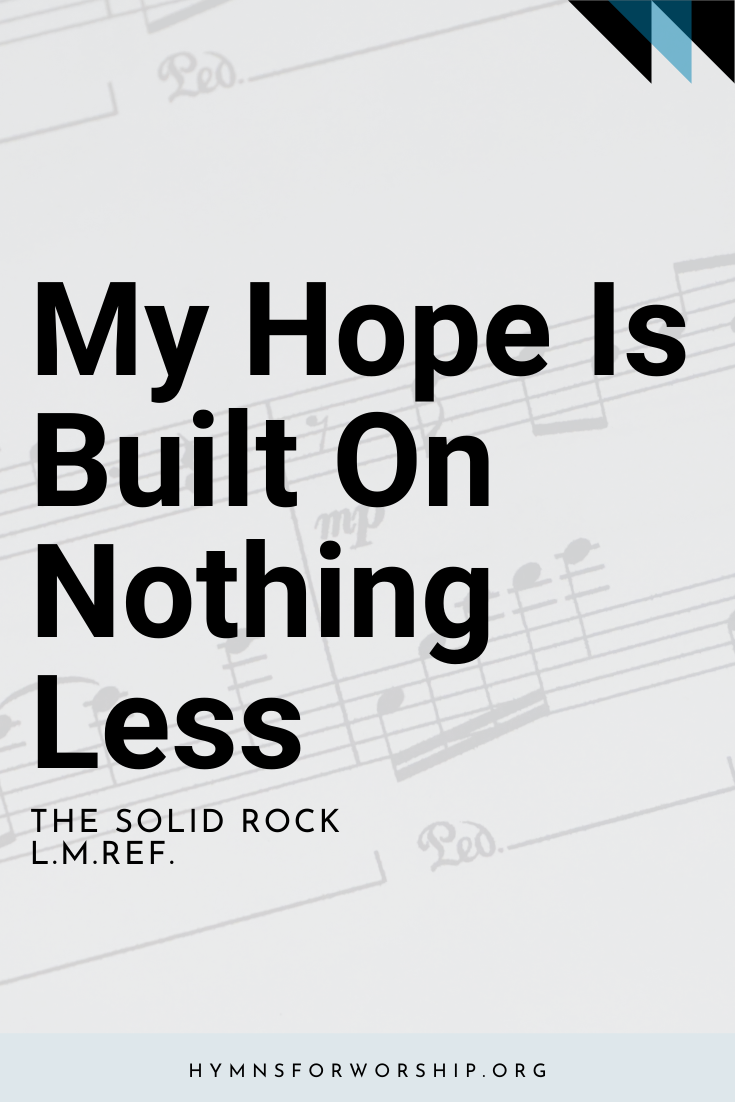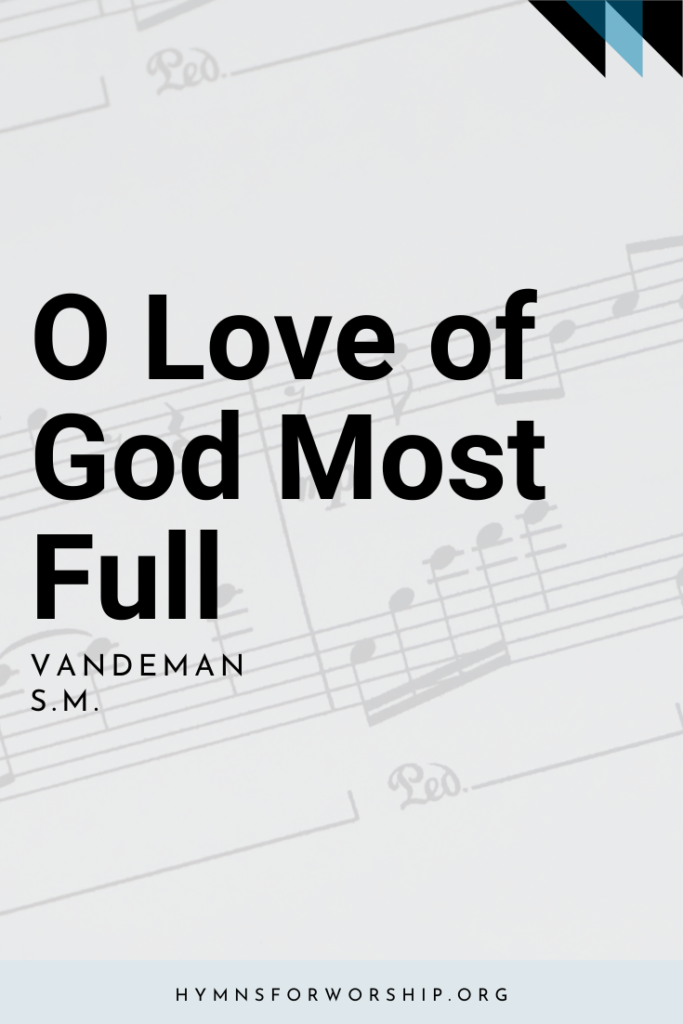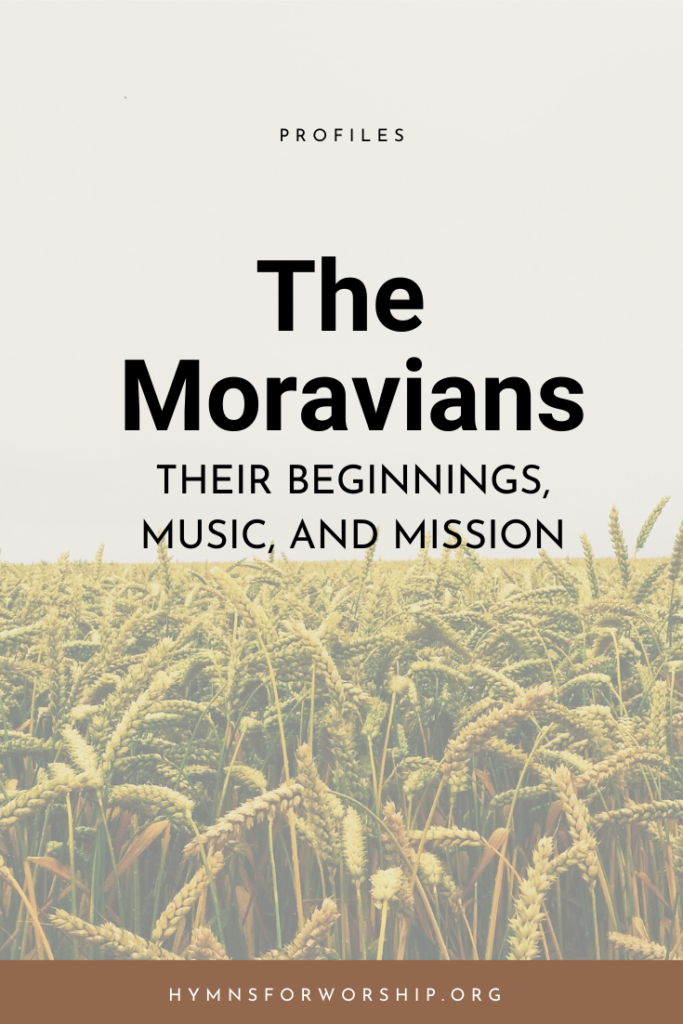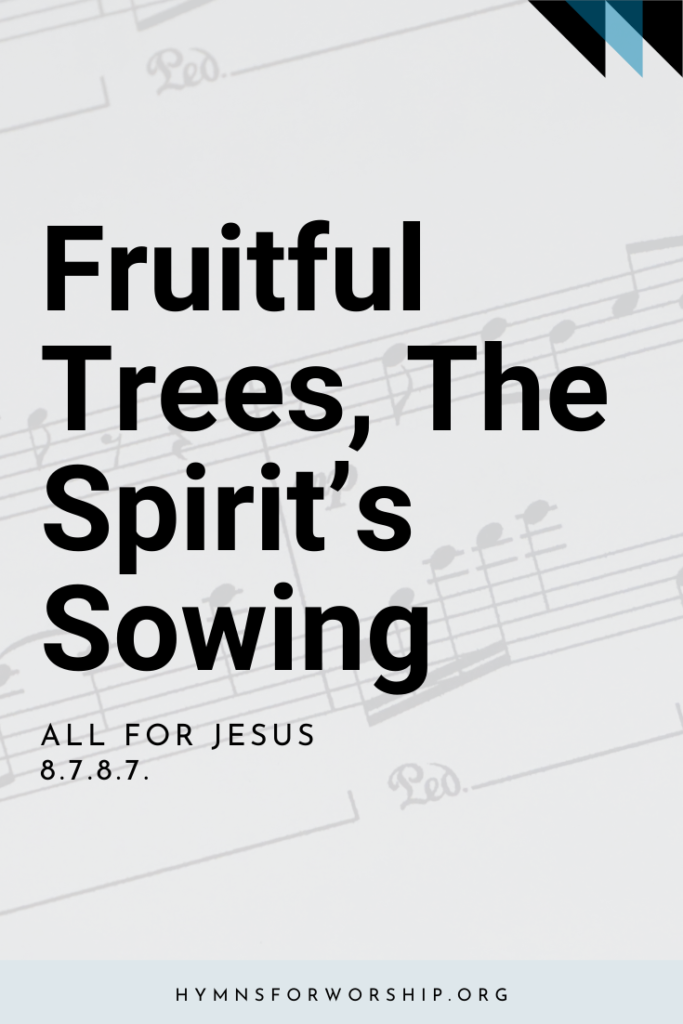CHRISTIAN LIFE >> FAITH & TRUST
SDAH 522
My hope is built on nothing less
than Jesus’ blood and righteousness.
I dare not trust the sweetest frame,
but wholly lean on Jesus’ name.
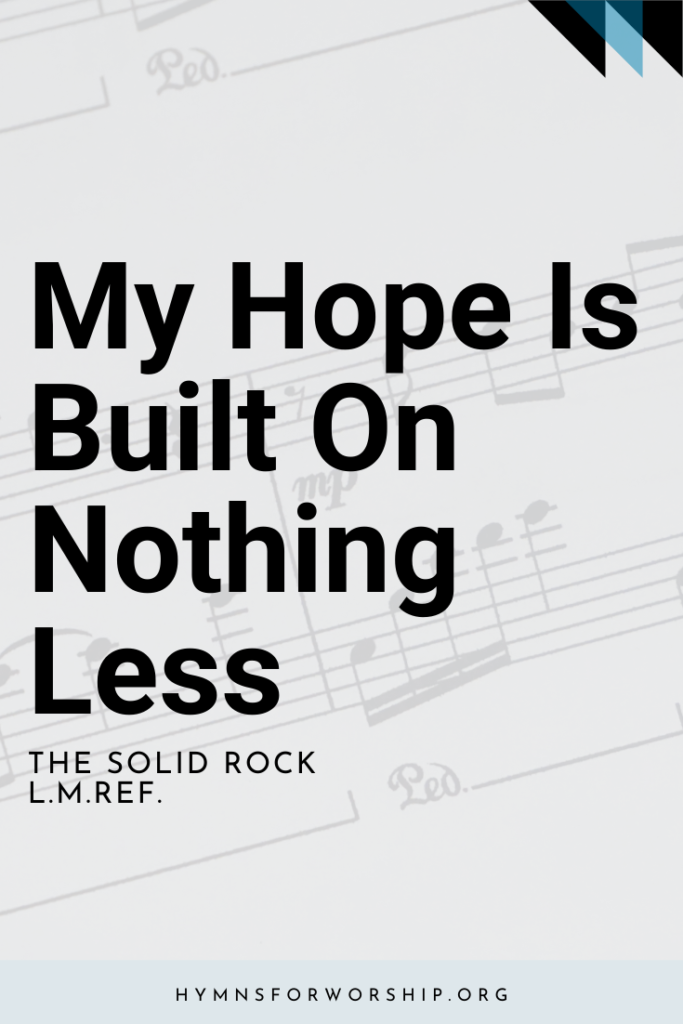

Text
1
My hope is built on nothing less
than Jesus’ blood and righteousness.
I dare not trust the sweetest frame,
but wholly lean on Jesus’ name.
Refrain
On Christ the solid rock I stand;
all other ground is sinking sand,
all other ground is sinking sand.
2
When Darkness veils his lovely face,
I rest on his unchanging grace.
in every high and stormy gale,
my anchor holds within the veil.
3
His oath, his covenant, his blood
supports me in the whelming flood.
When all around my soul gives way,
he then is all my hope and stay.
4
When He shall come with trumpet sound,
O may I then in him be found!
Dressed in his righteousness alone,
faultless to stand before the throne.

Hymn Info
Biblical Reference
(a) Ps 143:11 (b) Acts 15:11; Heb 6:19 (c) Ps 18:18 (d) 1 Thess 4:16; Phil 3:9; Jude 24 (r) Matt 7:24, 26
Author
Edward Mote (1797-1874)
Text Source
1834
Hymn Tune
THE SOLID ROCK
Metrical Number
L.M.Ref.
Composer
Wm. B. Bradbury (1816-1868)
Year Composed
1863
Alternate Tune and Harmony
Alt. tune MELITA, SDAH 85
Alt. harmony SDAH 200
Theme
FAITH & TRUST
Hymn Score
Piano Accompaniment
Notes
Get to know the hymns a little deeper with the SDA Hymnal Companion. Use our song leader’s notes to engage your congregation in singing with understanding. Even better, involve kids in learning this hymn with our homeschooling materials.
Obedience is a proof that our faith is standing on the solid Rock. Faith in the name of Jesus, the Solid Rock is the power that enables us to obey. Faith in His cleansing blood and righteousness makes our obedience holy and acceptable like the obedience of Jesus. (Lesson 4, 2nd Quarter 2021 – Thursday, Covenant Obligations, 4/22/2021)
We have no strength against the enemy and could never hope to win if it were not for Jesus. Because of His blood and righteousness, we can have victory over sin every time. No matter how fierce the fires of temptation, they cannot consume us as we abide in Him. (Lesson 4, 3rd Quarter 2022 -Monday, Faith Amid the Refining Fire, 7/18/2022)
When we find no other help, we can look to Jesus and know He is our Helper. He is the only One we can trust, and He will never fail us in our need. (Lesson 7, 1st Quarter 2023, Managing for the Master – Sunday, “God’s Provision for the Poor” 2/13/2023)
Edward Mote, born in London on January 21, 1797, was apprenticed to a cabinetmaker. During this period, at the age of 16, he was converted after listening to a sermon by the Reverend John Hyatt. He joined the Baptist Church two years later and lived in Southwark, south of the river Thames, and used to make a daily journey to the northern part of London to engage in his business. One day in 1834 as he went to work an idea came into his mind that he should write a hymn on the gracious experience of being a Christian. Walking up Holborn Hill, he formed the words of the refrain, evidently taking them from the last part of Jesus’ sermon on the mount, which describes two men, one who “built his house upon a rock,” and the other, “a foolish man, which built his house upon the sand.” Later the same day Mote completed four stanzas. The following Sunday he was requested by a friend to visit his dying wife. His friend’s custom for evening worship was to read the Bible and sing a hymn, but he could not find his hymnbook. Motes brought out his four stanzas and refrain and offered to sing them instead. They were greatly appreciated, which stimulated him to write two write two more stanzas. He decided to have the hymn printed and sent a copy to the Spiritual Magazine, where it was published. It was taken into hymnbooks in 1836 and 1837. Mote included it with 99 others of his compositions in his Hymns of Praise, a New Selection of Gospel Hymns, 1836, under the title “The Immutable Basis of a Sinner’s Hope.”
Late in life Mote became a Baptist minister. He was appointed to Horsham in Sussex and remained in this pastorate for 21 years until just before his death on November 13, 1874. He was buried in the churchyard.
The tune, THE SOLID ROCK, was composed in 1863 by William Batchelder Bradbury (1816-1868; see Biographies), and appeared in his Devotional Hymn and Tune Book, 1864. The music consists of two identical halves, and the harmony is almost entirely composed of the three major chords. See SDAH 200, “The Lord Is Coming,” for Melvin West’s (1903- ; see Biographies) harmonization of this tune.

